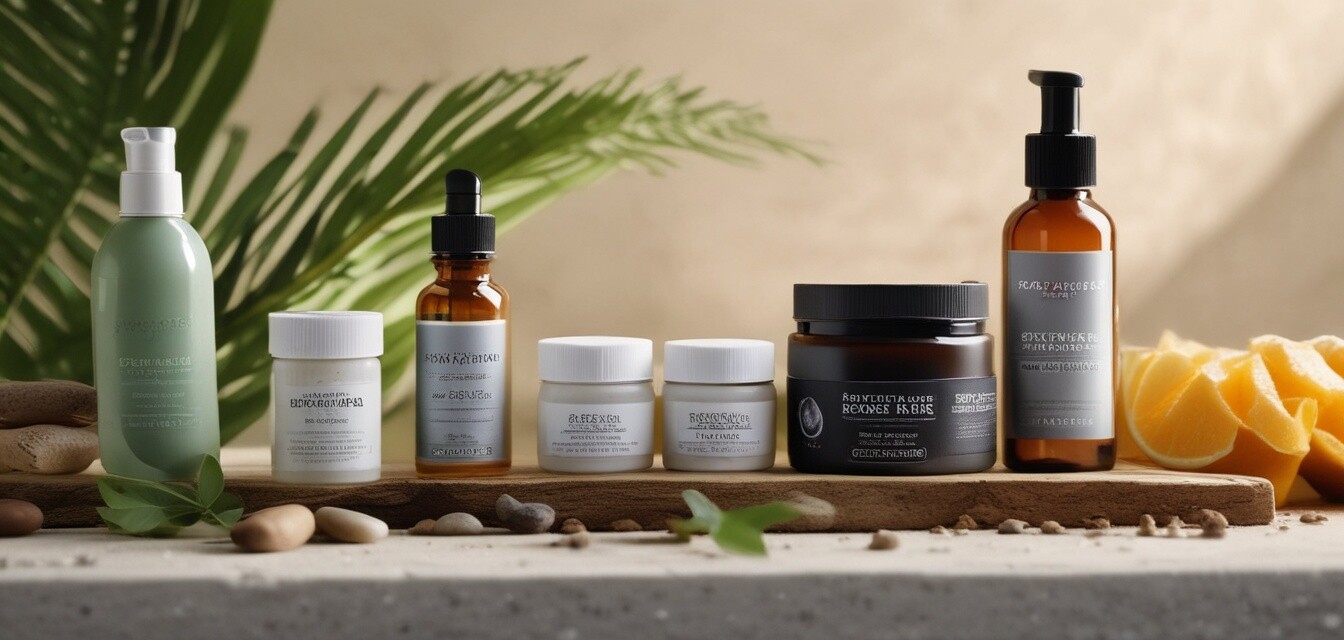
How to Choose the Right Exfoliating Method
Key Takeaways
- Understand the three primary exfoliating methods: chemical, physical, and enzymatic.
- Choose based on your skin type and concerns.
- Always patch test new products to avoid adverse reactions.
- Incorporate exfoliation into your skincare routine wisely; over-exfoliation can harm your skin.
Exfoliating is a crucial step in any skincare routine, especially for maintaining healthy and radiant skin. With so many methods available, it can be challenging to know which one is best suited for your skin type and concerns. In this guide, we'll explore the different exfoliating methods and how to select the right one for you.
Understanding Exfoliation
Exfoliation involves removing dead skin cells from the surface of your skin. This process helps to improve skin texture, unclog pores, and enhance overall appearance. Depending on your skin needs, you might choose a chemical, physical, or enzymatic method.
Types of Exfoliating Methods
| Type of Exfoliation | Description | Best For |
|---|---|---|
| Chemical Exfoliation | Uses acids or enzymes to dissolve dead skin cells. | All skin types, especially oily and acne-prone skin. |
| Physical Exfoliation | Involves scrubs or tools that manually slough off dead skin. | Dry and flaky skin types. |
| Enzymatic Exfoliation | Utilizes natural enzymes to gently remove dead skin. | Sensitive skin types that react to chemicals. |
Choosing the Right Method for Your Skin Type
Choosing the right exfoliation method is all about understanding your skin type and specific needs. Below is a breakdown of how different skin types can benefit from each exfoliating method:
Skin Type Guide
- Oily Skin: Chemical exfoliants containing AHAs (Alpha Hydroxy Acids) or BHAs (Beta Hydroxy Acids) can help reduce oiliness and prevent breakouts.
- Dry Skin: Physical scrubs might be suitable, but ensure they are gentle to avoid irritation. Look for moisturizing components in your products.
- Sensitive Skin: Opt for enzymatic exfoliants, which are gentle and less likely to cause irritation. Always perform a patch test first!
- Combination Skin: Use a combination of chemical and physical exfoliants in moderation to balance your skin.
How to Incorporate Exfoliation into Your Routine
When adding exfoliation to your skincare regimen, consider the following tips:
Beginner Section Tips
- Start with once a week and gradually increase to two or three times based on your skin's tolerance.
- Follow up with a good moisturizer to keep your skin hydrated and protected.
- Never exfoliate on the same day as using strong actives like retinol or vitamin C to avoid irritation.
- Pay attention to how your skin responds; if it feels sensitive, reduce frequency or switch methods.
Potential Risks of Exfoliation
While exfoliation has many benefits, it can also lead to issues if not done correctly. Here are some potential risks:
- Over-exfoliation can cause irritation, redness, and increased sensitivity.
- Physical scrubs may cause micro-tears in the skin if too abrasive.
- Some chemical exfoliants can make your skin more sensitive to sunlight, so use sunscreen daily.
FAQs About Exfoliation
How often should I exfoliate my skin?
Frequency can vary; however, it's generally recommended to exfoliate 1-3 times a week based on your skin type and the exfoliation method used.
Can I use multiple exfoliating methods together?
It’s best to avoid using multiple exfoliating methods on the same day to prevent irritation and over-exfoliation. Consider alternating methods and using products that pair well.
What should I do if my skin gets irritated?
Stop using the exfoliant immediately and apply a soothing moisturizer. If irritation persists, consult a dermatologist for advice.
Conclusion
Exfoliation can be a wonderful addition to your skincare routine if you choose the right method for your skin type. By understanding the differences between chemical, physical, and enzymatic exfoliation, you can make informed decisions that enhance your skin's health and appearance. Always prioritize your skin's needs and respond to how it reacts to different exfoliating techniques.
Pros
- Improves skin texture and tone.
- Helps in unclogging pores and reducing breakouts.
- Enhances absorption of other skincare products.
Cons
- Over-exfoliating can irritate the skin.
- Physical scrubs might cause micro-tears.
- Certain chemical exfoliants can increase sun sensitivity.
To learn more about different skincare products and routines, check out our detailed guides on exfoliators and masks, or explore the latest trends in organic skincare. For additional tips on crafting the perfect skincare routine, visit our skincare routine tips section.


